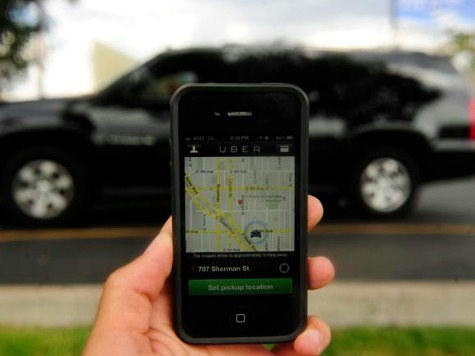
Nothing speaks more to the sheer power of the free marketplace than innovation – and changes in the way we do business. There may be no better example today of swift moving, fundamental change than the rise of transportation network companies (TNCs) – technology companies like Uber, Lyft and Sidecar which employ smartphone technology to allow individuals who are looking for local transportation to be matched with someone nearby who would like to give them a ride in their car.
Such a simple idea has caught on like wildfire. San Francisco based Uber Technologies, which is by far the giant in this new business sector, earlier this year completed a round of funding at a stunning $18.2 billion – a mere five years after the company’s founding.
Speaking from personal experience Uber’s service is a home run. Compared to taking a traditional taxi-cab, I have found it to be consistently cheaper, cleaner, and more efficient. Hallmarks include no payment hassles as your ride is merely charged to your card on file, an email sent to you right away that even shows a map of the route your driver took, and a simple five star rating system that allows Uber to can drivers who give less than exemplary customer service.
That said, typically innovation not only creates winners, but also losers. Ask the people who made audiocassettes, who had a good ride, but now… It is the taxi-cab industry that is feeling the crunch, big-time. TNC’s, offering an array of ride options from black SUV’s and towncars, to your neighbor’s Chevy Volt, simply are overpowering the cab industry.
The taxi-cab industry as a whole is massively overregulated. Local governments under the banner of “protecting public safety” license cabs (for heavy fees), they limit cab service in high-traffic areas so that they can sell “medallions” at steep prices, and the list of regulations goes on. In addition, most cabbies are unionized and you’ll see strikes if the salaries of these cabbies aren’t high enough. The end result is that these TNCs are able to come in and comfortably make a profit for themselves and their network of independent contractor-drivers.
That said, the taxi-cab industrial complex (taxi companies, unions, those profiting from all of the fees including local governments) rather than adapting is instead battling against TNC’s, in many cases using the coercive power of government as their weapon. There are examples all over the country, and world, of local jurisdictions trying to shut down TNC’s. Most recently the Mayor of Orlando has issued orders to ticket and impound TNC driver vehicles. Uber recently launched there and tens of thousands of people downloaded their app even before it went live. One imagines someone trying to plug an ant-hole with their finger – good luck with that.
Here in California the Taxicab Paratransit Association has sponsored Assembly Bill 612 (Nazarian) that seeks to pile an epic number of regulations on TRC’s for the obvious purpose of significantly increasing their costs of doing business, and thus impairing their ability to under-cut taxi-cab pricing. While one of the most draconian original proposals that would have required TRC drivers to have commercial insurance 24/7, even when they fare-finding app is turned off, has been eliminated from the bill, the list of remaining proposed regulations is long, and includes everything from mandatory drug and alcohol testing, mandatory Department of Justice criminal background checks, forcing state-certification decals onto all TRC vehicles, and of course lots of new paperwork requirements that add to the cost of doing business. There’s more but you get the gist.
By the way, if you think TRC’s aren’t screening their drivers already, check out Uber’s driver screening process and passenger safety standards.
It’s worth mentioning another bill that seems to be sailing through the legislature, AB 2293 (Bonilla), that addresses the issue of insurance for TRC driver’s using their own cars – significant since your personal policy doesn’t cover a commercial use. This bill says that when the driver turns on his app, indicating he or she is ready to be paired with a fare, the TRC’s commercial insurance should kick in. That actually sounds reasonable to me. This became a high-profile issue after an Uber driver in San Francisco, on his way to pick up a passenger with whom he’d been paired, killed a pedestrian and severely injured two others. The gray area of whether that person was technically insured by anyone at that moment is troubling to say the least.
Of course the California Public Utilities Commission is also taking an adversarial role with TRC’s.
Ultimately it will be very, very difficult for the taxi-cab industry and it’s allies to shut down TRC’s – but there was ever a legislature beholding to unions, it’s the one here in California. Keep a close eye on the State Capitol, and hope that the sheer popularity of Uber and their competitors trumps the pervasive cronyism in Sacramento.
Jon Fleischman is the Politics Editor of Breitbart California. A longtime participant, observer and chronicler of California politics, Jon is also the publisher at www.flashreport.org. His column appears weekly on this page. You can reach Jon at jon@flashreport.org.

COMMENTS
Please let us know if you're having issues with commenting.